
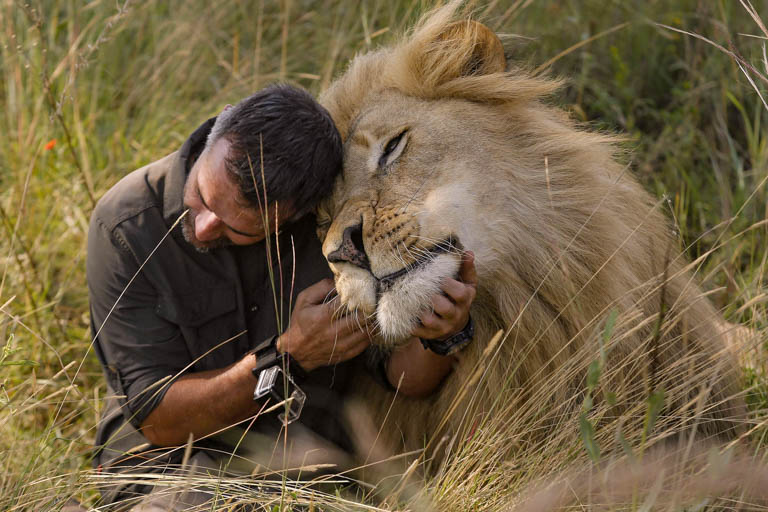
As well as writing novels set in Africa I’ve co-written a few autobiographies with some interesting people.
Some of these books are out of print now, but I tend to keep a few copies of each title. If you’re interested in buying one or more feel free to drop me a line at tonyparknews@gmail.com or fill out the contact form at the bottom of this page. If you include your delivery address, or at least your country of residence, I can work out a price for you including postage.
If you know someone interesting or famous who’d like their life story written (for a price), feel free to contact Tony.
I often get emails from people asking me to write, or help write their biography or the memoir of a relative or loved one. Inevitably, these people have had interesting lives, but it’s fair to say that when I received an email from Peter Whitehead outlining his life, I was amazed.
Peter's life in Africa was, of course, a major drawcard for me. I was fascinated to learn how he had been in on the start of tourism in two of Zambia's flagship national parks – Kafue and South Luangwa – and how he had worked on the sets of two of the best-known African movies, Born Free and Hatari!
Peter's story is, as he told me himself, a book of his times as much as it is his own tale. Today's readers should bear in mind that approaches and attitudes to things such as conservation, wildlife management and hunting have changed dramatically since the 1950s and 60s, when Peter was a game ranger and a hunter, and the two occupations were virtually indivisible.
Peter's love of animals, especially horses, shines through in his many touching stories about the four-legged friends who have loomed large in his long life.
In 2012 retired South African general Johan Jooste was parachuted into the seemingly unwinnable war against rhino poaching in the Kruger National Park.
With poaching spiralling out of control, Jooste was given the mandate to ‘go military’, to convert Kruger’s ranger corps into a para-military force capable of taking the fight to poachers.
Aged 60, white, and a veteran of his country’s apartheid-era wars, Jooste’s controversial appointment was immediately met with resentment and outright hostility by elements of South African National Parks, the police, and even the military he had served with.
In Afghanistan, sometimes all that stands between coalition troops and death or serious injury is a dog. Highly trained dogs and their handlers search for improvised explosive devices or hidden weapons out on patrol with combat troops.
It’s a perilous job, often putting them right in the firing line, and making them high priority targets for the Taliban insurgents they’re fighting.
Shane Bryant, a former Australian Army dog handler, has spent the past four years in Afghanistan working with elite American special forces alongside his faithful dog. War Dogs is his story – a riveting account of the hidden war in the mountains and cities of the world’s most dangerous conflict, and the comradeship between man and dog that has saved numerous lives.
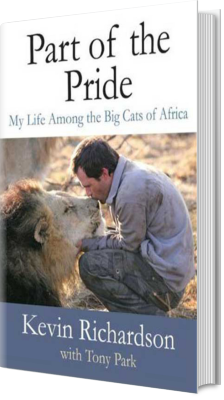
Kevin Richardson has been dubbed “The Lion Whisperer”. It’s a title he doesn’t like, but how else can you label his extraordinary relationship with these beautiful yet deadly animals?
As a zoologist and animal behaviourist, he works at a lion park in South Africa. Here he has formed incredible relationships with the big cats – playing with them, lying down with them, being included in every part of their lives as “one of the pride”.
Those who work with lions in the traditional way – using sticks, chains and coercion – call him crazy. But Kevin’s ability to get inside the head of a lion, using love, patience and a unique empathy, have kept him safe in situations that would result in certain death to anyone else.
This is Kevin’s incredible story. How a man could become part of a lion pride, and a fascinating insight into the lives of one of the world’s most beautiful and powerful animals.
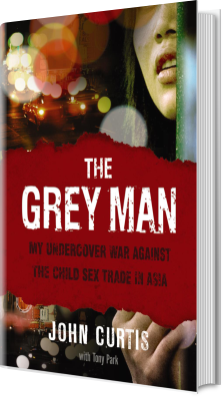
In northern Thailand a 12-year-old girl is sold to a middle-aged western man for sex. It’s a transaction as ordinary as it is disgusting. In this case, however, the man in question is not a paedophile – he is a rescuer, working undercover to free child sex slaves from an appalling life of exploitation and misery, securing their freedom as well as seeing to their subsequent long-term care, nurturing and education. The rescuer works for an organisation known simply as The Grey Man, an Australian army term for a quiet and dedicated professional who operates under the radar. This unique organisation is the brainchild of John Curtis, a former special forces soldier who has put his talents, energy and passion into fighting the child sex trade throughout Asia.
The Grey Man documents John Curtis’s personal story, from his restless early life to his military career and his search for meaning in his life – a search that took him to northern Thailand and the dramatic first rescue of a young victim of the sex trade. In the years since Curtis rescued that first child, The Grey Man has gone on to rescue literally hundreds of women and children in Thailand and Cambodia. The organisation, now an official charity working with other NGOs and law enforcement agencies, has also contributed to the arrest of paedophiles from Australia, Europe and the US. Their work continues today, with plans to expand into several other countries.
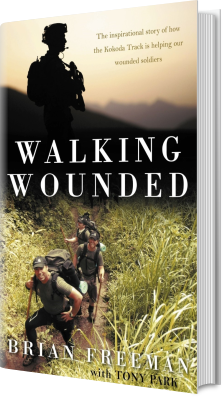
Australian readers can learn about the sacrifices young soldiers and their families have been making in our name in Afghanistan in ‘Walking Wounded,’ by Brian Freeman and me, now available.
Brian’s an ex army officer who leads treks on the Kokoda Track in Papua New Guinea. He came up with the notion that the physical challenge of walking the track might help young diggers with physical and emotional wounds from the war in their rehabilitation. This intriguing initiative was extended to the families of guys who had been killed in action.
‘Walking Wounded’ is the story of these brave people, told to Brian and me, in their own words. I found it both humbling and inspirational to spend time with them.
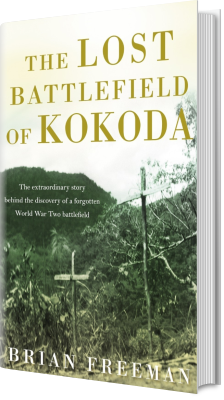
Brian Freeman knows the Kokoda Trail better than almost any other living Australian. The former Specialist Forces soldier has set records running the length of it and led dozens of treks along it for his adventure travel company. But in more than a decade of involvement with the trail, even he never suspected the secret held by the villagers of Alola, a tiny community perched high in some of the trail’s most difficult terrain.
Since 1942 the villagers had passed down a secret from generation to generation – the location of a lost battlefield, where advancing Australian forces and retreating Japanese soldiers had fought in the Second World War. It was one of the bloodiest engagements of the campaign, yet inaccurate references in maps drawn after the fighting meant that when the tide of war moved on, the battlefield was forgotten and quickly reclaimed by the jungle.
After years of friendship, in which Brian earned the villagers’ trust, they decided to let him in on the secret, knowing that such a revelation required a trustworthy person to help them manage the intense interest they suspected would follow. Their decision was vindicated as Brian authenticated and mapped the battlefield with professional archaeologists and helped set up a trust to act as guardian for the special site.
Part fascinating military history, part gripping archaeological mystery, part exciting adventure, The Lost Battlefield of Kokoda is the story of the trail and that long-ago battle – how it was fought, then lost and found.
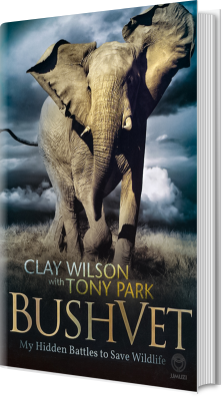
At the age of 54 Dr Clay Wilson sold his successful veterinary practice in an affluent part of Florida to go and work as a voluntary wildlife vet in the African bush, in the small town of Kasane on the edge of Botswana’s Chobe National Park.
Clay’s dream job eventually turned into a nightmare. His tough stance on poaching, other crime, and human-animal conflict led to a personal disaster.
Along the way Clay treated hundreds of ill and injured animals. There are heart-wrenching stories of the wildlife he couldn’t help, but also uplifting examples of one man being able to make a difference against the odds.
Bush Vet is being published in hard copy in South Africa only at the moment, but Clay and I are currently working on having it available as an e-book worldwide.
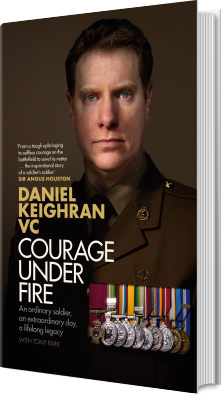
On 24 August 2010, in battle in Afghanistan, Corporal Daniel Keighran risked his life in a hail of gunfire to save his fellow soldiers. His actions saw him awarded the Victoria Cross for Australia, making him the 99th Australian to receive our country's highest award for bravery.
Courage Under Fire tells of Daniel's unlikely journey to become one of Australia's most celebrated soldiers.
Growing up was tough for Daniel. When he was eleven, his father showed up in his life, for the first time, with a gunshot wound to the stomach. He relocated his son, daughter and their mother 400 kilometres away from their loving grandparents and a coastal home to a shack with a dirt floor in outback Queensland. From then on, Daniel fought to maintain a sense of order and purpose amid the chaos of family violence and criminal activity.
Inspired by his much-loved grandfather, a WWII veteran, Daniel joined the army. There he found the structure that was missing from his teen years. Although just 17, Daniel adapted quickly to the demands of life in the military, always willing to learn, always wanting to grow, always seeking to emulate the example of his grandfather.
Courage Under Fire is an outstanding military memoir, packed with tales of multiple tours, accounts of extraordinary camaraderie, and a reflection on the unseen cost of service. Most of all it is a testament to the idea that anything is possible if you know what you stand for.
If you would like to purchase one or more of my books that are not available to order online, please feel free to complete the inquiry form below and I will get in touch with you.
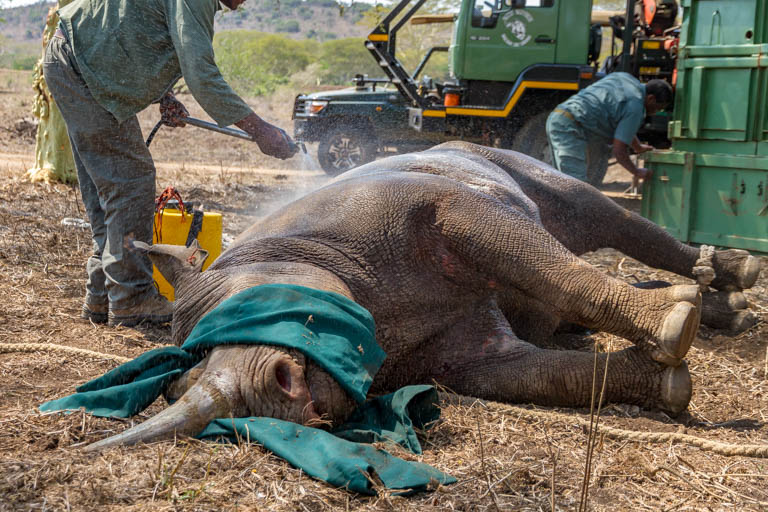
tonyparknews@gmail.com